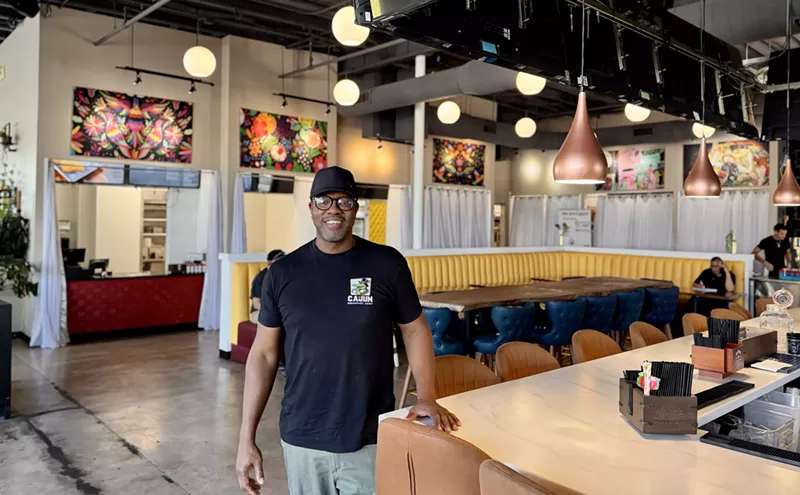My Brilliant Friend premiered November 18 on HBO.
The moment that sold me on My Brilliant Friend, HBO’s effective adaptation of the pseudonymous Italian author Elena Ferrante’s best-selling novel, wasn’t a shocking twist or suspenseful cliffhanger. Instead, it's a quiet, almost banal truth near the end of the first episode. Elena Greco (Elisa Del Genio) and Lila Cerullo (Ludovica Nasti), two girls growing up poor in Naples in the 1950s, sit against a wall in a neighborhood courtyard, playing with dolls. When Lila suggests they swap toys, Elena confers with her doll, announces that she has agreed, and, rather than simply hand each other the dolls, the girls act out, with perfect kid logic, the dolls’ journey, making them walk over to each other on the dusty ground.
It’s just exactly the sort of thing little girls do — endow their toys with the kind of free will they themselves so rarely get to exercise. Premiering on Nov. 18, My Brilliant Friend, the first of the wildly successful four-book series known as the Neapolitan Novels, is full of such details. The story of two girls who are too smart for their circumstances, one of whom will manage to transcend them, the show casts the minutiae of their tiny world as high drama. The stakes are high for narrator Elena and especially Lila, a child prodigy whose father becomes so irate at her insistence that she continue onto middle school that he throws her out the window, breaking her arm.
The miniseries, a co-production with Italian networks Rai and TIMvision, is the first non-English language series to premiere on HBO. It has the formidable task of adapting a work that is not only hugely popular — the books have sold more than 10 million copies worldwide — but is largely concerned with the inner lives of its lead characters, one of whom eventually grows up to become an author. Part of what makes the books remarkable is their elucidation of the process of developing an individual consciousness, and the expression of that consciousness through increasingly sophisticated language. The series honors this as much as it can. In one scene, the voiceover of a grown Elena reflects on a brilliant story that Lila wrote as a child, and remarks, in hindsight, “You didn't feel the artifice of the written word.” As old Elena reflects, director Saverio Costanzo films young Elena on the rooftop of her apartment, surrounded by flowing white sheets hanging on a line, gazing at a glistening hilltop in the distance — as if to suggest that language is the key to growth, to freedom, to escaping one’s circumstances.
The actors, many of them unknown and even amateur performers, speak in a thick dialect, and like the characters, Costanzo’s camera rarely strays from the confines of the neighborhood they call home. The Naples of My Brilliant Friend is not picturesque. It’s dusty and dry and colorless; gray apartment buildings rise from gravel streets into cloudy skies. We’re stuck in the same claustrophobic state as the restless characters, so that when they finally do escape, heading into town or to the beach, the view is as magnificent for us as it is for them. The sea, when Elena finally sees it, shimmers like something out of a Botticelli painting. In one episode, the girls skip school and leave the neighborhood for the first time. They walk holding hands down a dirt road rumbling with trucks, bordered by nothing but brown fields; to them, this might as well be the yellow brick road.
The adaptation rests largely on the backs of the four girls — Del Genio and Nasti, and Margherita Mazzucco and Gaia Girace — who play Elena and Lila, respectively, as children and then as teenagers. Nasti is particularly fierce as young Lila; her cutting eyes and conspiratorial grin suggest knowledge of the world beyond her years. The intensity of her performance matches the character’s, a kind of intrepidity bordering on recklessness. When her father flings her out that window, Lila lands on the ground with a thud, but as she clutches a wounded arm, a defiant smile spreads across her face. “I’m not hurt,” she insists. “I’m not hurt.” Anyone who may have taken the pastel-colored covers of the American editions of the books to suggest that Ferrante writes fluffy chick-lit is in for an eye-opener. The casual violence these girls witness, and often endure, is not slapstick — it’s extreme, and Costanzo presents it bluntly.
Just as blunt is the focus on the psychological and intellectual development of two girls, subject matter that, on stateside screens, is rarely accorded the kind of fanfare that comes with a highly anticipated HBO miniseries. Elena’s voiceover narration goes a long way in this regard. Like My So-Called Life, the critically acclaimed 1990s drama about a teenage girl figuring out who she is, My Brilliant Friend gives a rather eloquent voice to the inner workings of young girls’ minds. It takes them seriously, paints them as fully human and lets them explain to us how it feels.

Audio By Carbonatix
[
{
"name": "GPT - Billboard - Slot Inline - Content - Labeled - No Desktop",
"component": "21251496",
"insertPoint": "2",
"requiredCountToDisplay": "2"
},{
"name": "STN Player - Float - Mobile Only ",
"component": "21327862",
"insertPoint": "2",
"requiredCountToDisplay": "2"
},{
"name": "Editor Picks",
"component": "16759093",
"insertPoint": "4",
"requiredCountToDisplay": "1"
},{
"name": "Inline Links",
"component": "17980324",
"insertPoint": "8th",
"startingPoint": 8,
"requiredCountToDisplay": "7",
"maxInsertions": 25
},{
"name": "GPT - 2x Rectangles Desktop, Tower on Mobile - Labeled",
"component": "21934225",
"insertPoint": "8th",
"startingPoint": 8,
"requiredCountToDisplay": "7",
"maxInsertions": 25
},{
"name": "Inline Links",
"component": "17980324",
"insertPoint": "8th",
"startingPoint": 12,
"requiredCountToDisplay": "11",
"maxInsertions": 25
},{
"name": "GPT - Leaderboard to Tower - Slot Auto-select - Labeled",
"component": "17012245",
"insertPoint": "8th",
"startingPoint": 12,
"requiredCountToDisplay": "11",
"maxInsertions": 25
}
]








